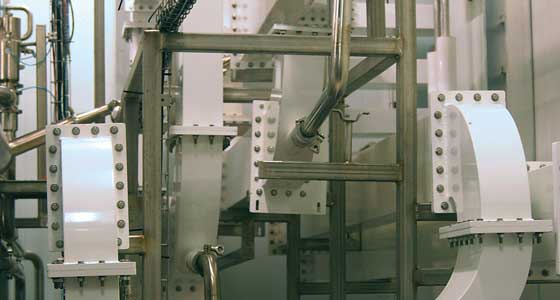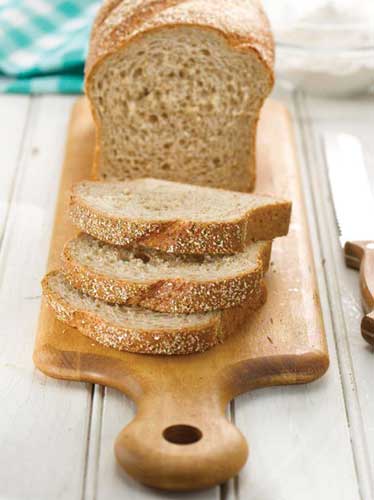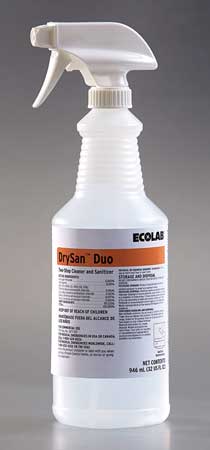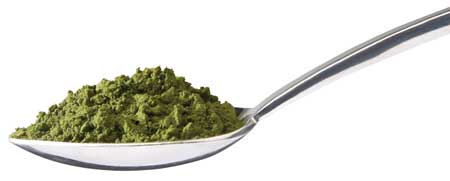Four Products that Push the Technology Envelope
Four companies captured the 2015 Food Expo Innovation Award for their breakthroughs in microwave-assisted aseptic processing, enzyme technology, no-rinse sanitizing, and plant-based protein.

Encompassing nearly 300,000 square feet of floor space and 1,225 exhibiting companies showcasing ingredients, instrumentation, and technology, the recent food expo in Chicago offered attendees ample opportunities to explore new developments. And some of these advances were truly groundbreaking, most notably the winners of the 2015 IFT Food Expo Innovation Award.
At a special presentation on Sunday morning at IFT15, IFT President-Elect Colin Dennis presented four companies with the 2015 IFT Food Expo Innovation Award. The winners are Aseptia Technologies, Corbion, Ecolab, and Parabel.
“Now in its ninth year, the Food Expo Innovation awards program is a showcase for amazing advancements in our profession,” said Dennis. “Exclusive to companies exhibiting at the IFT15 food expo, these awards honor outstanding innovation in products, ingredients, technologies, instrumentation, equipment, and services that were commercially introduced since January 1st of 2014.”
A panel of nine jurors from industry, academia, and government with broad expertise in research & product development, processing & packaging technology, and food safety selected the four companies and their innovations from 47 qualified entries. Judging criteria included degree of innovation, technical advancement, benefits to food manufacturers and consumers, and scientific merit.
Aseptia Technologies, Raleigh, NC, captured the 2015 IFT Food Expo Innovation Award for its AseptiWave Modular Advanced Thermal Processing Systems, which utilize microwave-assisted advanced thermal processing to deliver superior product quality for aseptically packaged foods and beverages.
AseptiWave is a family of advanced thermal processing systems with a builtin, extensively and robustly tested scale-up strategy and controllability at pilot plant (2–4 gal/min), intermediate (10–20 gal/min), and high (20–40 gal/min) industrial throughput levels. The technology provides virtually instantaneous and tightly controlled thermal come-up and rapid cool down, minimizing product losses in changeovers and shutdowns for cleaning in place.
Product applications range from aseptically packaged beverages, purees and smoothies, broths and sauces to low-acid vegetable blends and particulate-enriched salsas and chunky soups. The technology can accommodate a wide range of package options, including cartons, bottles, cups, pouches, and cans for both retail and foodservice sizes as well as drums, bags, steel-lined containers, and even tankers.
 Corbion, Lenexa, KS, won the award for its Ultra Fresh Premium Advantage Enzyme Blend, which extends the shelf life, freshness, taste and flavor of bread while enabling the reduction of some ingredients, such as added sugar, high fructose corn syrup, and yeast. Usage rate is 0.5% based on flour weight.
Corbion, Lenexa, KS, won the award for its Ultra Fresh Premium Advantage Enzyme Blend, which extends the shelf life, freshness, taste and flavor of bread while enabling the reduction of some ingredients, such as added sugar, high fructose corn syrup, and yeast. Usage rate is 0.5% based on flour weight.
The bio-based enzyme’s ability to extend shelf life seven or more days may enable bakeries to expand distribution to new geographies or potentially expand to new outlets such as convenience, drug and dollar stores. In the consumer’s pantry, the extra shelf life may translate to reduced waste.
In addition to shelf life, the enzyme blend enhances bread softness, further adding to its consumer appeal. Consumer research comparing 19-day-old bread with Ultra Fresh Premium Advantage Enzyme Blend and a 12-day-old control bread showed that the 19-day-old bread outperformed the control on various sensory characteristics, including freshness, flavor, texture, and overall liking.
According to Corbion research, 92% of consumers expect bread purchased in the commercial aisle to last between 5 and 14 days. Nearly half of consumers would like their bread to remain fresh an additional 7 days longer. And 46% of consumers would expand their bread purchases to include different types or varieties they don’t regularly purchase if bread stayed fresher longer.
 Ecolab, St. Paul, MN, was honored for its DrySan Duo Two-Step, No-Rinse Cleaner and Sanitizer, which is designed for dry and low-moisture processing environments. The product reduces cleaning time by eliminating the use of rinse water between cleaning and sanitizing. Use of DrySan Duo helps enhance food safety programs by providing excellent cleaning performance as verified by adenosine tri-phosphate (ATP) results, successfully cleaning a wide variety of stainless steel, soft metal, and hard plastic surfaces.
Ecolab, St. Paul, MN, was honored for its DrySan Duo Two-Step, No-Rinse Cleaner and Sanitizer, which is designed for dry and low-moisture processing environments. The product reduces cleaning time by eliminating the use of rinse water between cleaning and sanitizing. Use of DrySan Duo helps enhance food safety programs by providing excellent cleaning performance as verified by adenosine tri-phosphate (ATP) results, successfully cleaning a wide variety of stainless steel, soft metal, and hard plastic surfaces.
Plant trials using DrySan Duo showed an average 30% reduction in total cleaning time compared to traditional wet cleaning methods. The trials also demonstrated equivalent performance to traditional wet cleaning utilizing aerobic plate count and Enterobacteriacea test methods.
Many products used for sanitizing in dry processing environments are formulated with high levels of alcohol to achieve quick-drying. But concentrated alcohol is highly flammable and presents a potential safety hazard in a production facility. In contrast, DrySan Duo contains a low level of alcohol and is not classified as a flammable material, but is still quick-drying to help reduce any moisture in sensitive areas and to help protect water-sensitive equipment. Product classification as a combustible rather than a flammable allows for more flexibility in storage, as well as handling and application, as compared to higher alcohol content products. No worker Personal Protective Equipment (PPE) is required during use.
 Parabel, Melbourne, FL, received the 2015 IFT Food Expo Innovation Award for its LENTEIN plant protein, which is derived from water lentils. The highly digestible protein has an amino acid profile comparable to whey protein and is claimed to be higher in essential amino acids and branched chain amino acids than any other plant protein.
Parabel, Melbourne, FL, received the 2015 IFT Food Expo Innovation Award for its LENTEIN plant protein, which is derived from water lentils. The highly digestible protein has an amino acid profile comparable to whey protein and is claimed to be higher in essential amino acids and branched chain amino acids than any other plant protein.
The product—a free-flowing powder—contains 65–70% concentrated high-quality plant protein and omega-3 fatty acids, is high in carotenoids, and rich in antioxidants. It is highly dispersible and has excellent foaming attributes. Applications include beverages, chips, crackers, and bars.
The plant grows in a lined aqua farm; no valuable arable land is needed for this crop to flourish. There is no need for pesticides and herbicides and no chemicals are used in the extraction process. The aqua farm has also been described as carbon neutral and the water use per kg of LENTEIN plant protein is substantially lower than other proteins—less than 1 liter per kg of product.
The floating aquatic plant, due to its exposed, surface position in nature, has developed a way of self-cloning as a means to reproduce. This characteristic allows for harvest to take place daily, which translates to a yield per hectare (i.e., approximately 30 metric tons per hectare per year) that is higher than terrestrial protein crops.
 Bob Swientek is Editor in Chief, Food Technology
Bob Swientek is Editor in Chief, Food Technology
([email protected]).
